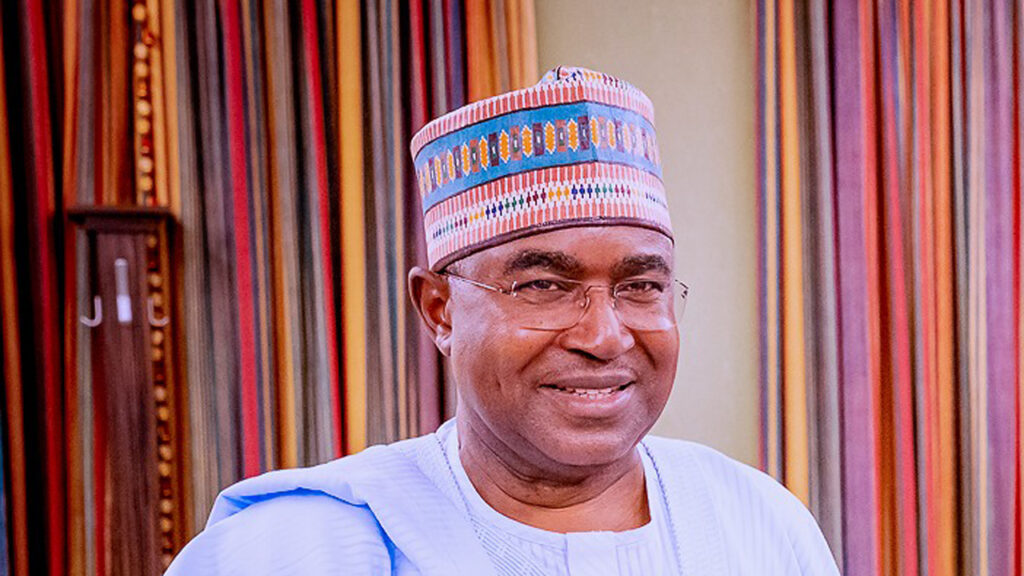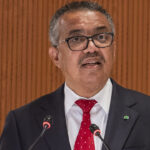[dailymotion code=”k3QNNxpSZLWQbyx4BSP” autoplay=”yes”]
• PSN, others seek free testing, treatment for infected patients
• Dons move to discourage stigmatisation of COVID-19 survivors
Worried that every 30 seconds someone dies from a hepatitis-related illness, medical experts have called on countries to work together to eliminate viral hepatitis as a public health threat by 2030.
President, Pharmaceutical Society of Nigeria (PSN) and Convener, the New Nigeria Group (NNG), Mazi Sam Ohuabunwa, yesterday, at a press conference to mark World Hepatitis Day, said a hepatitis-free future is achievable with a united effort.
The PSN joined the global community in celebrating World Hepatitis Day with the theme: ‘Hepatitis can’t wait.’
Ohuabunwa said while progress has been made in the hepatitis response, there is still a long way to go. In many countries, priority interventions remain inaccessible to the populations most severely affected or at higher risk. He said the COVID-19 pandemic has impeded the development and delivery of core services that tackle viral hepatitis and other infectious diseases and Non-Communicable Diseases (NCDs).
The pharmacist said the PSN has set up screening, education and enlightenment campaigns all over the country to equip people with the knowledge to act.
“Today is marked throughout the globe as World Hepatitis Day (WHD). World Hepatitis Day is observed each year to raise awareness of viral hepatitis, an inflammation of the liver that causes severe liver disease,” Ohuabunwa said.
According to the World Health Organisation (WHO), over 354 million people worldwide live with chronic hepatitis. Over 8000 new infections of hepatitis B and C occur every day and more than one million deaths from advanced liver disease and liver cancer occur every year.
Also, a consultant gastroenterologist and hepatologist at the Federal Medical Centre Abuja, Dr. Micheal Chidebere Okorie, challenged the Federal Government to intervene by making treatment for hepatitis free as it does for humans Immuno-deficiency Virus (HIV).
Speaking at the 2021 WHD at the Federal Medical Centre in Abuja, Okorie said because of the lack of government support, quacks are latching on to the opportunity to make fast money to the detriment of the patients.
Okorie said: “Government has to support system for patients with HIV but none for patients with Hepatitis and that is a very big problem. Why will you not provide Hepatitis drugs for people who have Hepatitis B but you are providing free drugs for HIV patients? Meanwhile, their mode of transmission is the same thing.”
He said the Association for Gastroenterologists in Nigeria has been raising the alarm.
“You will do viral load free for a patient who has a co-infection of HIV and Hepatitis B, who got the virus the same way. You will do a free viral load for HIV and then ask the patient to go and pay N60, 000 to do a viral load for Hepatitis B. That is not fair,” he said.
Medical Director of the centre, Prof. Saad A. Ahmed, noted that Hepatitis “is actually a disease of public health importance. A lot of people are affected. Currently, the WHO has estimated that about 354 million people are living with Hepatitis and this number needs to be brought down.”
He said further: “We are looking at a situation whereby we educate the masses on how they can prevent themselves from coming in contact with the Hepatitis virus and therefore lessening the incidence of Hepatitis in the community.”
This came as Edo State governor, Godwin Obaseki, urged stakeholders in the health sector to collaborate with the government in intensifying awareness on the need for early diagnosis, treatment and risk factors that expose people to Hepatitis.
The governor said this in commemoration of World Hepatitis Day, stressing: “It is imperative to reaffirm the state government’s resolve to deepen reforms in the healthcare sector and collaborate with stakeholders to afford residents the opportunity to access quality healthcare services for early diagnosis and treatment of ailments, including viral Hepatitis.”
Also, experts have called for the intensification of campaigns to discourage the stigmatisation of COVID-19 survivors.
The experts, Dr. Wole Oladapo from the University of Ibadan and Damilola Agbalajobi from Obafemi Awolowo University, maintained that another lockdown is predictable but urged the government to put necessary measures in place to cater for the welfare of the people.
They spoke, yesterday, in Lagos at the presentation of their study, ‘Gender contentions in fragile, conflict and violence-affected settings: unpacking women’s leadership, empowerment and accountability, at the Utafiti Sera Stakeholder Forum.
The event was supported by Partnership for African Social and Governance Research (PASGR) and Action for Empowerment and Accountability Research Programme (A4EA).













